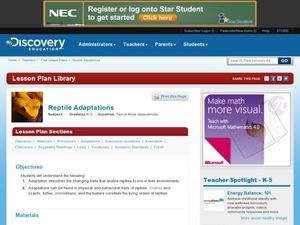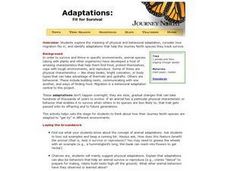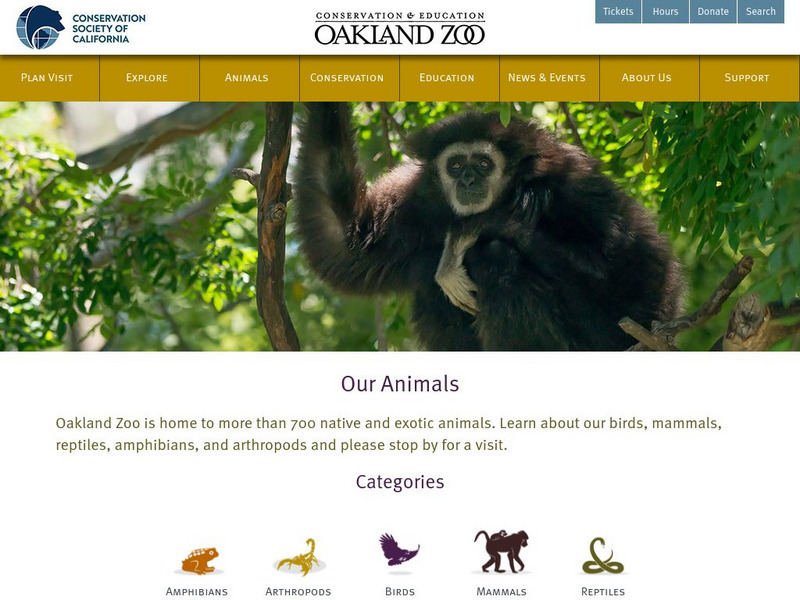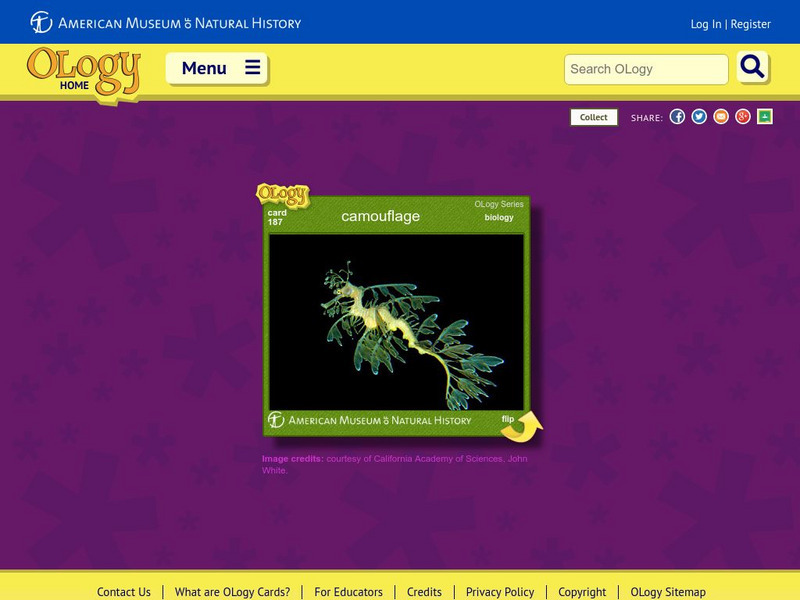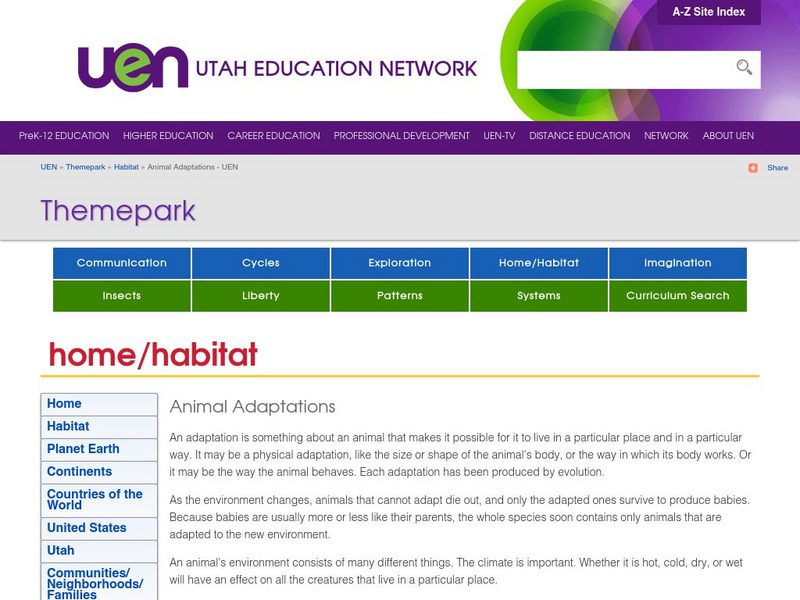Howard Hughes Medical Institute
Recent Adaptations in Humans
You've probably spent plenty of time discussing animal adaptations with your young biologists, but what about human adaptations? Explore the evolving traits of humankind through an interactive that combines text and video clips. Scholars...
Howard Hughes Medical Institute
Sorting Finch Species
Don't just tell your class about Darwin's finches ... show them! Sort some of science's most famous birds using an interactive lesson. Learners try their hand at classifying finches using song, sonogram, and beak appearance, as well as...
New York State Department of Environmental Conservation
Adaptations – Designs for Survival
What's the difference between behavioral adaptations and physical adaptations? Learn about the various ways that organisms adapt to their environment with a worksheet about the creatures of the Hudson River.
Curated OER
Dining Out With Fishes and Birds of the Hudson
The class will make observations to determine how environment has shaped the way particular birds and fish eat. They will view a series of photographs, read two short articles, and then consider how food availability has determined how...
Curated OER
Reptile Adaptations
Students research animal adaptations. In this adaptations lesson, students research the physical and behavioral adaptations of animals. Students create a diagram of their animal labeling it's adaptations.
Curated OER
The American Prairie
Students design an animal. In this prairie activity, students learn about physical and behavioral adaptation, locate the Great Plains on a map, and design an animal that would be perfectly adapted for life on the prairie. Students...
Curated OER
Adaptations: Fit For Survival
Middle schoolers track species using the Journey North project. They examine the meaning of physical and behavioral adaptation, migration, and identify adaptations that help the species they track survive.
Curated OER
It's For the Birds
Fifth graders examine how anatomical adaptations make it possible for a bird to survive in various habitats. They discuss and list birds and their unique characteristics, and create an imaginary bird, illustrating the environmental...
PBS
Pbs Learning Media: Bird Food and Bird Beaks
There are almost as many types of bird beaks as there are types of food that birds like to eat. This collection of images shows a wide range of beaks and the types of foods handled by each.
PBS
Pbs Learning Media: Seeing Through Camouflage
This interactive feature from the NOVA: "Leopards" Web site presents a wide variety of ways in which animals use coloration to their advantage.
PBS
Pbs Learning Media: Bird Beak Gallery
This collection of images of ten different birds illustrates the diversity of bird beaks.
Oakland Zoo
Oakland Zoo: Our Animals
This comprehensive resource provides photos and animal fact sheets that list special adaptations for a wide variety of animals. See some animals with their young.
PBS
Pbs Learning Media: Shark Attack! The Hunt
This interactive module from the NOVA: "Shark Attack!" web site details the six senses that sharks use to find and capture their prey.
Utah Education Network
Uen: Animal Adaptations
A multitude of activities provide help with understanding animal adaptations.
TED Talks
Ted: Ted Ed: How Do Geckos Defy Gravity?
Geckos aren't covered in adhesives or hooks or suction cups, and yet they can effortlessly scale vertical walls and hang from ceilings. What's going on? Eleanor Nelsen explains how geckos' phenomenal feet allow them to defy gravity. [4:30]
American Museum of Natural History
American Museum of Natural History: Camouflage O Logy Card
Flip this interactive OLogy card to start learning about camouflage and the role it plays in helping animals survive.
Online Learning Haven
Adaptations: Penguins
An interesting look at the structural and behavioral adaptations of the penguin. Neat penguin facts are included at the end of the site.
Online Learning Haven
Adaptations: Sea Turtles
An interesting that examines the structural and behavioral adaptations of the sea turtle. The problems of survival faced by the hatchlings is also delved into in this site.
Smithsonian Institution
National Museum of Natural History: Where Do Mammals Live: Giraffe
Review basic facts about the giraffe and launch an interactive activity that demonstrates the length of its tongue, a physical adaptation that helps the giraffe survive in its environment.
Smithsonian Institution
National Museum of Natural History: Where Do Mammals Live?: Wildebeest
Brief illustrated overview of the wildebeest and an accompanying video demonstrate the physical adaptations that allow this animal to eat and digest tough African grasses.
Utah Education Network
Uen: Animal Adaptations
In this engaging site, adaptations are defined and then a list of animals are provided along with adaptation-related questions to answer. Links to the animal sites are included.
Scholastic
Scholastic: Dirtmeister's Science Lab: Animal Adaptations
In this lesson plan site, students will investigate what animal adaptations are and how animals are adapted to where they live. A four-step process guides the students in their investigation.
Online Learning Haven
Online Learning Haven: Animals and Adaptation
This general site defines adaptation and sites examples of some of the best examples of adaptation found in the animal world. Related articles are found at the bottom of this site.
Enchanted Learning
Enchanted Learning: Giraffe Adaptations
Giraffe's have many physical adaptations. This site provides a worksheet and asks students to connect the physical adaptation description to the correct place on the worksheet.






